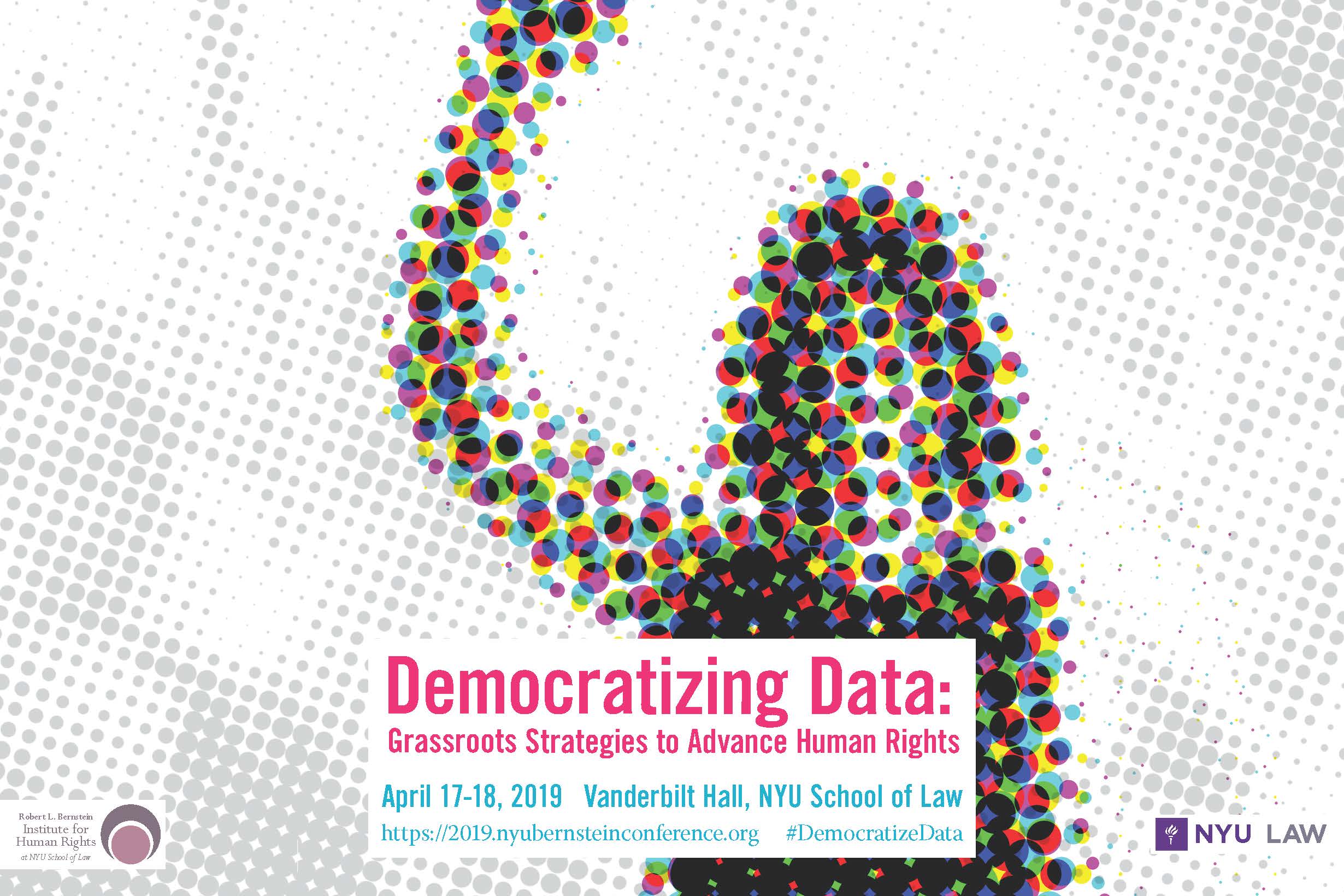Democratizing Data:
Grassroots Strategies to Advance Human Rights
April 17-18, 2019
Greenberg Auditorium, Vanderbilt Hall, NYU School of Law
Seen as essential to understanding human life, data informs and shapes knowledge creation. It is powerful, political, and for the most marginalized can serve as mirrors of hard, distorting glass.
For generations data has been a tool of oppression, generated and harvested by colonial regimes, corporations, and government agencies alike to exert control and often exploit the poor and marginalized. The ability to define individuals and communities has often remained in the pockets of the powerful, with marginalized communities excluded from the design, collection, and analysis of the data that represents their lived realities. As the process of datafication – the rendering our lives subject to computation and algorithm – increases, the divide between those with the power to define and calculate and those subject to such processes, rapidly grows. This exclusion is sometimes deliberate and by design – aimed at supporting public policies and financial transactions that expand state control and corporate capture. But often this exclusion is born of material inequities and institutionalized bias, which is built into the very identities ascribed to individuals and communities who are categorized, tagged, and sorted by algorithms. Whether born of an overt scheme to exert power or the result of microprocesses of labeling and computation, the results are often the same: indigenous lands are seized for profit, refugee bodies are deemed illegal, vulnerable populations are rendered invisible, and communities of color are targeted for crimes they did not commit.
In the shadow of datafication’s dark side, a movement is brewing at the grassroots. When data is demystified, deconstructed, and placed in the hands of affected communities, it can be used to empower and fight injustice. From exerting control over processes of definition, computation, and machine learning, to rejecting data-driven systems outright, communities are deliberately subverting data systems imposed on them or turning the data gaze on those in power.
The 2019 Bernstein Institute for Human Rights Conference aims to bring these stories to light. The conference will draw together leading human rights practitioners and academics from across the globe to explore the possibilities of democratizing data and data processes as a pathway toward legal empowerment and realization of human rights. Speakers will reflect on the emerging field of data justice, and highlight strategies that deepen engagement of marginalized communities in understanding, collecting, shaping, subverting, and resisting the data that defines their lives.
We are incredibly grateful to the Bernstein family for their extraordinary leadership, philanthropy, and deep commitment to human rights. Through their support, the Robert L. Bernstein Institute for Human Rights has made it possible to educate the next generation of human rights leaders at NYU School of Law and keep the institution at the cutting edge of legal education, research, and practice. Democratizing Data honors the legacy and vision of Robert L. Bernstein, a leader and tireless defender of human rights and fundamental freedoms around the world.
Register here for #DemocratizeData!
Conference Schedule:
Wednesday 4/17
9:00-10:30am – Panel 1: Advancing Human Rights by Democratizing Data
10:30-10:45am – Coffee Break
10:45-12:15pm – Panel 2: Expressions of Data Resistance and Activism
12:15-1:15pm – Lunch
1:15-2:45pm – Panel 3: Democratizing Data Collection: The Power of Community-Generated Data
2:45-3:00pm – Coffee Break
3:00-4:30pm – Panel 4: Can We Democratize Data?
6:00pm – Dinner for Speakers and Invited Guests
Thursday 4/18
9:30-11:00am – Panel 5: Artificial Intelligence and Affected Communities
11:00-11:15am – Coffee Break
11:15-12:45pm – Panel 6: Pushing Boundaries: Data as Art and Evidence
12:45-1:45pm – Lunch
1:45-3:15pm – Panel 7: Shifting the Gaze: Democratizing Data Analysis
